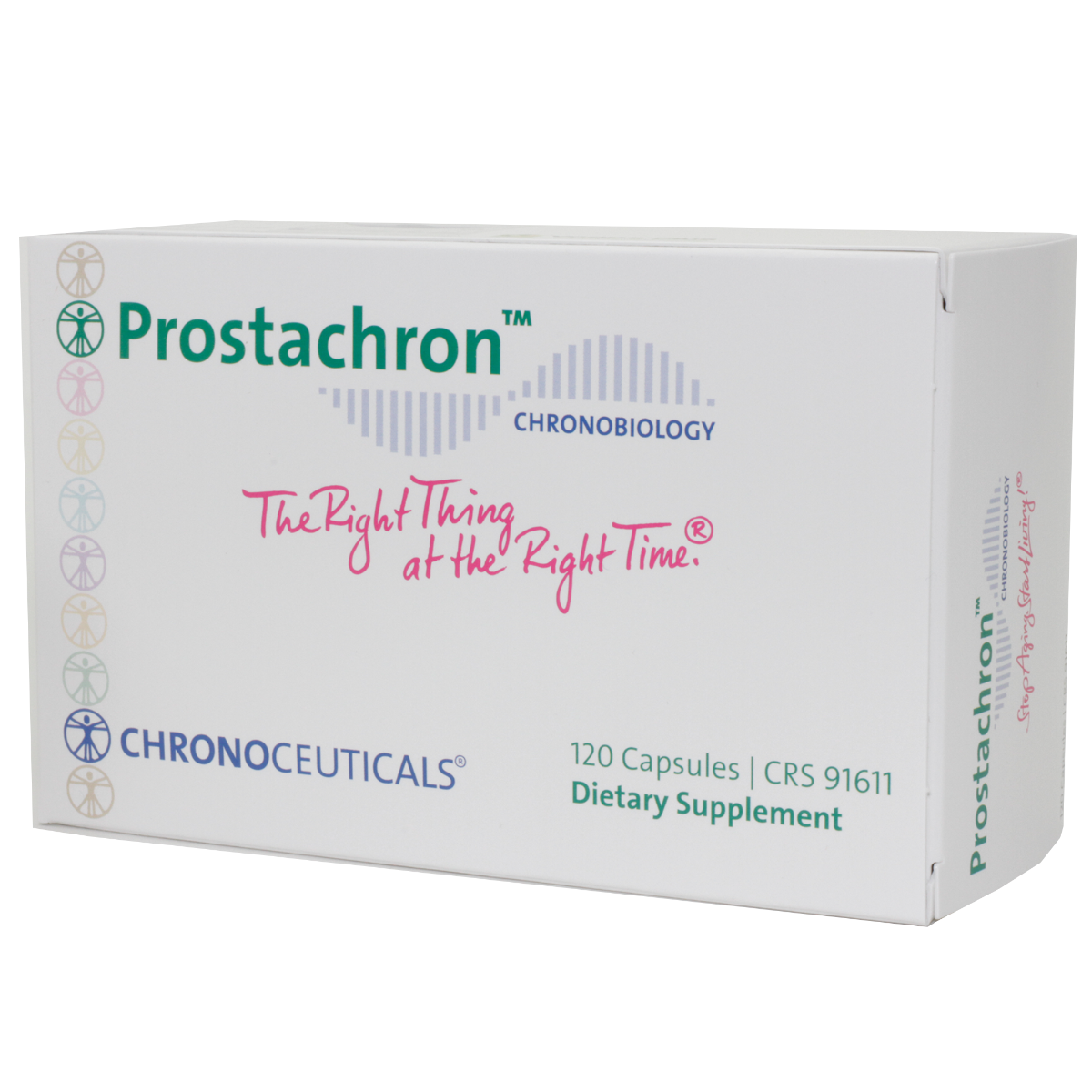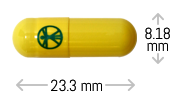Basics
It is common for the prostate gland to begin to grow between the ages of 40 and 50. Often taking a slow, intermittent course, it eventually develops into the most common reason for disturbance of bladder emptying in men. This growth is caused by the cells of the prostate reproducing more rapidly, enlarging the cell tissue. As the prostate grows larger, it may begin to press on the urethra, which it encircles, hindering urine flow.
An unhealthy prostate can greatly affect quality of life. As a rule, prostate growth is associated with hormonal changes which occur during male menopause (andropause), when a drop in male sex hormones, particularly testosterone, occurs. As men age, the amount of the growth hormone and estrogens also slowly decreases.
High stress levels and certain lifestyle factors also contribute to sub-optimal prostate health and can begin to occur even in men younger than 40. Prostate concerns can lead to a number of problems such as difficulty urinating, delay in urination (hesitancy), a reduction in the force of the urine stream, longer terminal dribbling, and frequent passing of small amounts of urine at night.
The prostate (a word derived from the Greek word meaning “one who stands before”, “protector”, or “guardian”) is situated below the neck of the bladder, and encircles the urethra. It is a compound organ made up of 30 to 50 small glands. These glands produce a fluid that is secreted into the urethra at the time of ejaculation, accounting for two thirds of the volume of semen. The prostate also produces a special antigen called PSA, which has become recognized as a marker for abnormal prostate function.
The size of the prostate does not always determine how severe the resulting symptoms will be. Even a minor enlargement of the gland may result in severe symptoms. Prostate health tends to deteriorate slowly and progressively. A rectal exam performed by a physician can determine whether the prostate is a healthy size, and it is frequently recommended that men over the age of 45 get this exam on a regular basis.
Effects
Vitamin C: Helps protect against free radicals.
Vitamin E: Helps maintain healthy testes.
Pumpkin seed extract (cucurbita pepo): Helps maintain healthy hormonal balance.
Aspen extract (populus tremula): Helps maintain healthy cellular inflammatory processes.
Stinging nettle extract (urtica): Promotes a healthy immune system.
Goldenrod extract (solidago): Helps maintain healthy cellular inflammatory processes.
Asparagus extract: Possesses diuretic properties.
Astaxanthin: Protects cellular health, aids in the transfer of energy.
Saw palmetto extract (serenoa repens): Protects cellular health.
Resveratrol: Promotes healthy aging and longevity, protects against free radicals, and promotes healthy cellular inflammatory processes.
Selenium: Promotes healthy cell growth.
Beta-sitosterin: Protects healthy cell growth.
EPA, DHA: Omega 3 fatty acids that maintain healthy cellular inflammatory processes and metabolic function.
Coral Calcium: Special mineral formulation to enhance absorption of other ingredients.
On the whole, these phytosubstances contain thousands of constituents with unique chemical structures and equally sophisticated mechanisms of action, and are all particularly helpful in protecting against free radicals.
Uses
The chronobiological supplement Prostachron™ intelligently combines highly-bioactive substances that offer free radical protection, like carotinoids, phytosterines, phytosterols, phenylglycosides and polyphenols, in one capsule to be taken in the morning and one capsule for the evening, based on the latest chronobiological principles. During the day, healthy bladder function is supported, while at night the focus is on maintaining healthy cellular inflammatory processes. The components in Prostachron™ act together, augmenting rather than inhibiting each others’ effects.
Prostachron™ is based on traditional and scientific findings. The two diets known to be associated with increased prostate health are the Japanese diet and the Mediterranean diet. The Japanese diet is high in green tea, soy, vegetables and fish. The Mediterranean diet contains large amounts of fresh fruits and vegetables, garlic, tomatoes, red wine, olive oil and fish.
Aside from beneficial nutrients found in foods like these, scientists have identified more than a dozen medicinal plants, spices, and herbs all over the world that help maintain prostate health. This process began in the middle of the 20th century with fat-soluble extracts obtained from the berries of the saw palmetto (serenoa repens) plant – a natural remedy used by the Mayas and North American Seminole Indians to enhance libido and arousal, help soothe female concerns, support healthy fertility, and help maintain a healthy prostate. The effect of these berries, which were initially used as animal feed, is triggered by the mild hormone-like phytosterols they contain.
In 1985 and 1991 a commission on medicinal plants of the German government recommended pumpkin seed (cucurbita pepo) for supporting a healthy prostate. The pumpkin plant family has been cultivated for 16,000 years. Fewer instances of prostate concerns are known to occur in regions with a tradition of eating dried pumpkin seeds, such as the Balkans, Asia Minor and Ukraine. Nowadays the most valuable phytosubstances contained in the pumpkin are extracted both from its seeds and oils. In 2005 cucurbita pepo was voted Medicinal Plant of the Year.
Supplement Facts
Supplement Facts AM (Morning)
Per Serving
Daily Dose
Daily Value
Vitamin C (as Ascorbic Acid)
125 mg
250 mg
278%
Vitamin E (as D-Alpha Tocopheryl Acid Succinate)
45 mg
90 mg
600%
Calcium (as Coral Calcium)
4.5 mg
9 mg
<1%
Selenium (as Sodium Selenite)
40 mcg
80 mcg
145%
Stinging Nettle Root Extract 4:1
125 mg
250 mg
N/A
Pumpkin Seed Extract 4:1
100 mg
200 mg
N/A
Omega-3 Fatty Acid Complex
60 mg
120 mg
N/A
[EPA (Eicosapentaenoic Acid)
36 mg]
72 mg]
N/A
[DHA (Docosahexaenoic Acid)
24 mg]
48 mg]
N/A
Asparagus Root Extract
50 mg
100 mg
N/A
Aspen Bark Powder
25 mg
50 mg
N/A
Goldenrod Root Extract 4:1
25 mg
50 mg
N/A
Bioperine (from Black Pepper Fruit Extract)
1.25 mg
2.5 mg
N/A
Other Ingredients: Vegetable capsule, magnesium stearate, silicon dioxide.
Supplement Facts PM (Evening)
Per Serving
Daily Dose
Daily Value
Calcium (as Coral Calcium)
4.5 mg
9 mg
<1%
Pumpkin Seed Extract 4:1
150 mg
300 mg
N/A
Saw Palmetto Fruit Extract
125 mg
250 mg
N/A
Omega-3 Fatty Acid Complex
60 mg
120 mg
N/A
[EPA (Eicosapentaenoic Acid)
36 mg]
72 mg]
N/A
[DHA (Docosahexaenoic Acid)
24 mg]
48 mg]
N/A
Sitosterols (Including Plant Sterols Beta-Sitosterol, Campesterol, Stigmasterol, Brassicasterol, Sitostanol)
30 mg
60 mg
N/A
Resveratrol (from Japanese Knotweed Root Extract)
20 mg
40 mg
N/A
Astaxanthin (from Haematococcus pluvialis Algae Extract)
2 mg
4 mg
N/A
Bioperine (from Black Pepper Fruit Extract)
1.25 mg
2.5 mg
N/A
Other Ingredients: Vegetable capsule, magnesium stearate, silicon dioxide.
Dosage: As a dietary supplement, take 2 AM capsules (yellow) in the morning, and 2 PM capsules (blue) in the evening at mealtime with 8 ounces of water.
Caution: Do not exceed recommended dose. Pregnant or nursing mothers, children under 18, and individuals with a known medical condition should consult a physician before using this or any dietary supplement.






